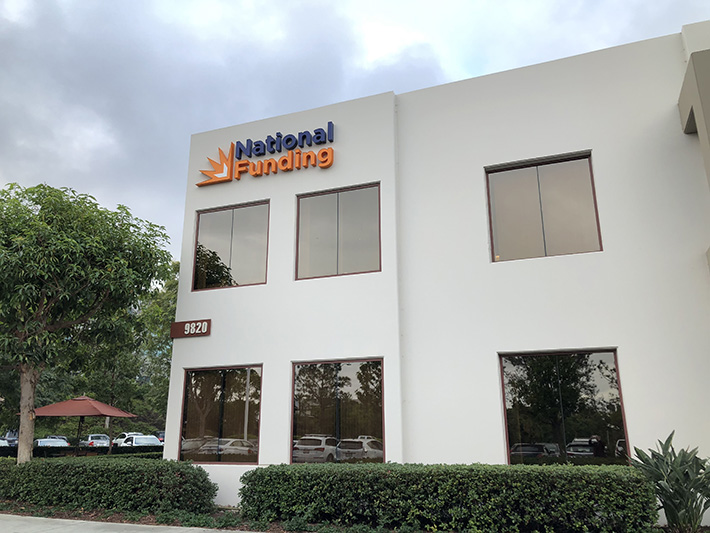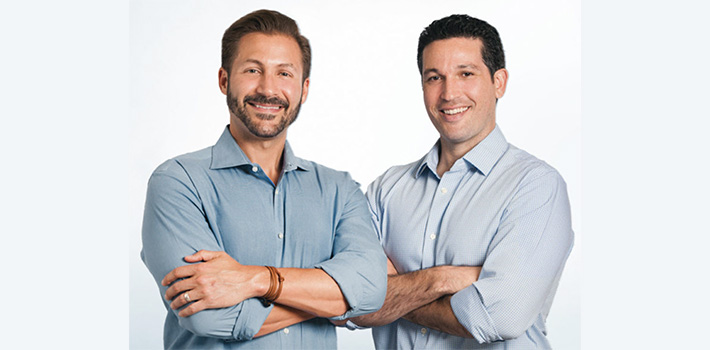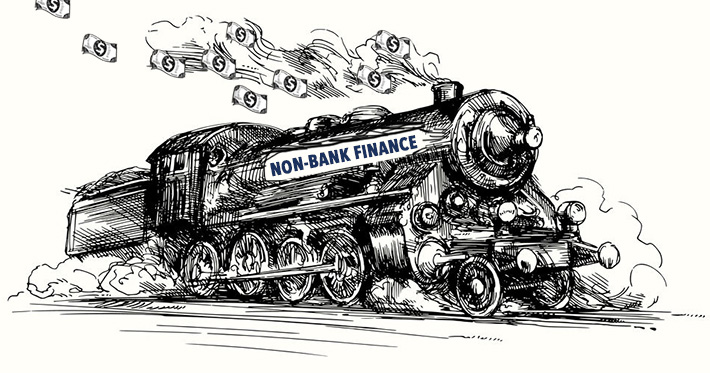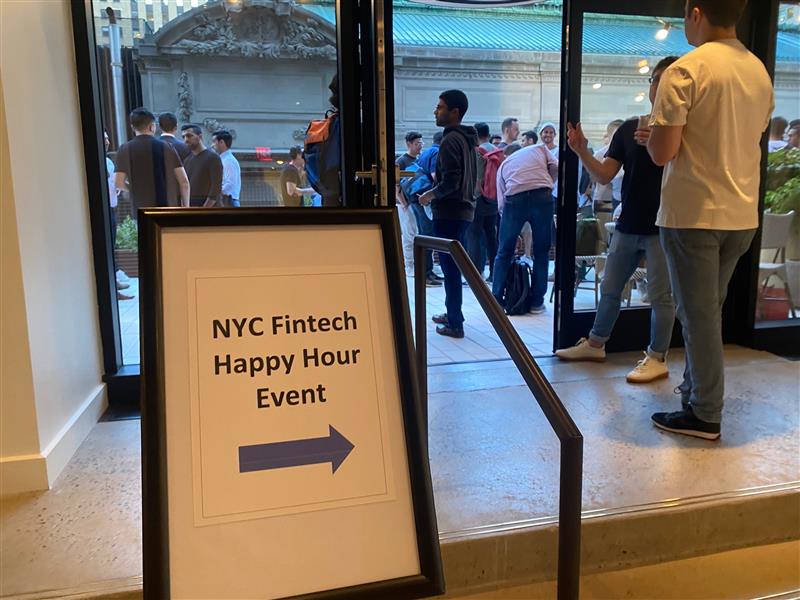Kevin Travers was a Reporter at deBanked.
Articles by Kevin Travers
National Funding on Growing its Team to Prepare for the Bull Run of 2022
July 15, 2021 “We’re about people and platforms,” President of National Funding Joe Gaudio said. “PP: People and platforms, not PPP, that’s my little acronym.”
“We’re about people and platforms,” President of National Funding Joe Gaudio said. “PP: People and platforms, not PPP, that’s my little acronym.”
National Funding is back and looking to hire fresh talent, rebuilding their team after the pandemic rolled through the California market.
“Whether it was California or if we resided in another state, it impacted small business owners throughout the country,” Gaudio said. “Small businesses took a big impact. A significant number of customers requested temporary relief loan modifications. And that’s how the PPP program helped bridge that gap for a lot of small business owners, and get them through the pandemic.”
Gaudio said that National Funding was affected like every peer firm was by the pullback, explaining that their normal customer was looking for PPP funding, not a bridge loan. National rolled back their team by about 50%, and rolled back funding for several months. After the worst of it had passed by the end of the summer, National was back, strictly pulling the reigns but still going. Now they are hiring in every department, and Gaudio said nothing is stopping a gigantic 2022 rebound of demand. Benjamin Flowers as CTO and Luca Marseglia to the Data Science Division are just the beginning.
“We’re rescaling, we’re hiring quite a bit this year, and so these two hires are part of our rescaling: rebuilding not only the leadership team, but the rest of the organization,” Gaudio said. “We’re always looking for new high performers and contributors that that fit into our culture. Even pre-pandemic: if you’re an A-player, you’re a high performer, and you can add value, we will take a look at you, we will find room for you.”
National believes the coming year will unleash tremendous pent-up demand, Gaudio said. In the short term, the firm plans to offer intermediate financing to help SMBs handle the bumps on the way. Though there will be some supply chain, labor, and schooling/childcare problems next year, it will still be big, and National has been preparing, working at the office the whole way through.
“That’ll still continue to put somewhat of a cap on the recovery for small business owners, but we expect a big year in 2022,” Gaudio said. “We’ve embraced the hybrid model for certain functions, [but] sales and operations, underwriting: we’re 100% back in the office, and we’ve been like that since last July. It’s important to our culture to be together… I just continue to be very bullish about the future, and I think it’ll be exciting to see the continued evolution of our industry and the platforms.”
Cross River Bank Makes Moves as Fintech Acquirer, VC
July 13, 2021 Known in the space as the fintech partner bank, Cross River took another step down the path leading the industry: Last month, the bank bought PeerIQ, a company that does data analytics for loan underwriting. The bank also launched a venture capital arm to continue investing in startup fintechs in a more formalized way- though they have been partners for years.
Known in the space as the fintech partner bank, Cross River took another step down the path leading the industry: Last month, the bank bought PeerIQ, a company that does data analytics for loan underwriting. The bank also launched a venture capital arm to continue investing in startup fintechs in a more formalized way- though they have been partners for years.
“PeerIQ is a company we’ve known for a number of years; we’ve been working with them, partnering with them and in various ways for two or three years,” Phil Goldfeder, Senior Vice President of Public Affairs at Cross River, said. “We recognized that we would probably better serve our customers and partners if we came together, so we’re happy that we’re able to acquire Ram [Ahluwalia, CEO of PeerIQ] and his team at PeerIQ and we’re excited about the collaboration moving forward.”
PeerIQ will function as a part of Cross River, bringing intelligent analytics to every transaction. Cross River, located 14 floors up just across the George Washington Bridge in New Jersey, has about $13.5 billion of assets and has originated more than $46 billion in loans since 2008, Bloomberg estimates. The way forward, as Goldfeder said, was through innovation, leveraging tech and teams like PeerIQ’s to better serve clients. That also means using the formal VC branch to help new firms grow their platforms and future acquisitions.
“Number one is to grow on PeerIQ’s core business, providing data analytics, and creating technology in the secondary market, but more importantly, for Cross River to help our partners and our clients serve,” Goldfeder said. “There’s, no question that we will continue to explore companies that would help strengthen Cross River and the fintech ecosystem and provide additional services to our partners.”
 The bank has over 15 partnerships with top fintechs, like publicly traded Affirm, Rocket Loans, Coinbase, and private firms funded through VC rounds like Stripe. The bank most recently became a significant part of the PPP government emergency loan program. Ranking among giants like JP Morgan and Bank of America, Cross River ranked 6th overall for dollar amount approved. According to the bank, they doled out 490,000 PPP loans for a total of $13 billion, making up 4% of the entire program volume.
The bank has over 15 partnerships with top fintechs, like publicly traded Affirm, Rocket Loans, Coinbase, and private firms funded through VC rounds like Stripe. The bank most recently became a significant part of the PPP government emergency loan program. Ranking among giants like JP Morgan and Bank of America, Cross River ranked 6th overall for dollar amount approved. According to the bank, they doled out 490,000 PPP loans for a total of $13 billion, making up 4% of the entire program volume.
The way forward is clearly through embracing what it always has been at its base: the bank across the Hudson that is willing to partner with upstart brands and help them take over the world. With a flurry of consolidation purchases in the “post-pandemic” world (if that isn’t too early to say) that are only going to increase, Cross River seems to be on to something. Goldfeder said that Covid showed the rest of the world what the fintech space has known for ten years, that added value for customers and partners means innovation.
“Post-pandemic, where I think there was a larger recognition from the financial services industry of the need to innovate,” Goldfeder said. “Cross River is always known that we need to innovate… The post-pandemic dynamic we recognize that there’s tremendous value in creating a more formal venture arm to examine, explore companies that we can invest in to help them grow, help them succeed, and …. increase our support of our partners.”
Bloomberg reported Cross River is in secret talks to raise $200 million of funding at a valuation of $2.5 billion or more. The bank previously raised $100 million in 2018 in a round led by KKR, deBanked reported, and in 2016 raised $28 million.
Idea Financial’s Co-Founders Weigh In On Their New $84M Credit Facility and Future
July 9, 2021 Miami-based Idea Financial closed on an $84 million warehouse facility with the Specialty Finance Division of Synovus Bank and Hudson Cove Capital Management. Co-founders Larry Bassuk and Justin Leto said the funds are going right toward financing their pandemic proof SMB line of credit product and supporting their one-of-a-kind litigation insurance and plaintiff-lawyer financing.
Miami-based Idea Financial closed on an $84 million warehouse facility with the Specialty Finance Division of Synovus Bank and Hudson Cove Capital Management. Co-founders Larry Bassuk and Justin Leto said the funds are going right toward financing their pandemic proof SMB line of credit product and supporting their one-of-a-kind litigation insurance and plaintiff-lawyer financing.
“We’re still firing on all cylinders with our flagship line of credit products with small businesses, and Synovus and Hudson Cove are going to allow us to use these facilities to finance the litigation cost finance product,” Leto, who serves as the CEO, said.
The two former lawyers will draw from their experience in insurance, their legal backgrounds, and SMB underwriting to create a product that serves contingency lawyers called Level Esq. Often overlooked, the founders said law firms are just like other small businesses.
 “Not only our experience as lawyers but also our experience as fintech lenders; we’re bringing all that expertise to bear here, and this is the culmination of our experience in finance, law, and insurance,” Bassuk, president of Idea Financial said. “Not only is our product going to be revolutionary and the best in market, but the customer experience is going to mirror the experience that our small business customers have.”
“Not only our experience as lawyers but also our experience as fintech lenders; we’re bringing all that expertise to bear here, and this is the culmination of our experience in finance, law, and insurance,” Bassuk, president of Idea Financial said. “Not only is our product going to be revolutionary and the best in market, but the customer experience is going to mirror the experience that our small business customers have.”
They focus on contingency firms — cash-dependent practices where lawyers invest their own money to back plaintiffs in injury and compensation cases. If there is no victory, there is no payout, so their other company, Level Insurance, offered protection for lawyers left holding the bag in the case of failure.
“Larry and I invented a first and only-of-its-kind insurance product that allows plaintiffs lawyers to protect all of their cost investment for their case,” Leto said.
The new brand coming soon, Level Esq., will offer a loan upfront to finance cases, while Level Insurance has lawyers’ backs with insurance if cases fall through.
“We’re providing an actual line of credit, loans, or small business loans for the lawyers themselves, so they finance their case costs. It’s a pretty revolutionary product and we’re doing it the way we financed small businesses,” Leto said. “Lawyers will be able to tap into that fintech side of our business. If it currently takes weeks if not months to get this type of financing, you’ll be able to do it in hours or days.”
In general, Bassuk said the warehouse closing is a sign that the hard work during the pandemic paid off, and Georgia-based Synovus Bank and Jersey-based Hudson Cove noticed.
“Over the last year, 18-months-plus since the beginning of Covid: our underwriting methodologies, our risk management, management strategies, and our operations were validated,” Bassuk said. “And I think that’s also something that Synovus and Hudson Cove noticed is that our business model, our portfolio performed exceptionally well under stress and during Covid, and I think that’s another contributing factor that led us to where we are.”
Leto and Bassuk recently starred in a deBanked TV docuseries about doing business in Miami.
The Biggest Expansion Period of Our Lifetime? The Non-Bank Finance Industry Says Full Steam Ahead
July 8, 2021 Erez Stamler, Managing Director of Fresh Funding, said that the events of the past year has been an up and down ride, from the initial shutdown shock to rushes in demand. Now that the world is back, those that survived are here to stay and need capital to grow.
Erez Stamler, Managing Director of Fresh Funding, said that the events of the past year has been an up and down ride, from the initial shutdown shock to rushes in demand. Now that the world is back, those that survived are here to stay and need capital to grow.
“At first the system was in shock, then a phase where we saw a strong spike in submissions [where] the owners were probably looking for some sort of PPP-type solution, and that was not available by us,” Stamler said. “Going into 2022 we believe there’s a lot of demand out there. A lot of businesses have demonstrated growth during Covid and hopefully will continue that into 2022. As far as we can see right now, we’re going strong this year for sure.”
Alex Vasilakos, who tracks online interest in alt finance as the director of marketing for Finance Marketing Group, said there had been an increase in online searches for non-bank financing solutions in the past year because banks weren’t sure how the pandemic would pan out.
“We are back in the office, and we are seeing a large uptick in digital advertising since Covid, and it is continuing to increase,” Vasilakos said in an email. “I am seeing and predicting that people will be leveraging more online sources for financing than they have in the past.”
Amotz Segal, a startup co-founder of Edge Funder, said that if the Covid spikes and black swan events are over, there is no limit to demand, and the hybrid model is here to stay. Edge Funder uses lead generation and AI underwriting to make SMB deal-making easier, Segal said.
“I think nobody’s really bullish enough, I think we’re facing the beginning of the biggest expansion period of our lifetime,” Segal said. “Our team based in New York City will hopefully gradually go back to the office this fall. That being said, I don’t think that we will ever see a one-hundred percent office-space environment. I think what the pandemic did is accelerated a trend that already began of people working from home, working remotely, and not having to attend the office daily.”
Segal has grounds to be bullish: Edge was just acquired by Yes Lender after only a year of development.
 James Lee, CEO and co-founder of Julius Technologies, said that people had definitely gotten a feel for remote work, but virtual does not replace in-person communication. Julius is a startup that creates cost-effective back-end infrastructure for fintechs, building efficient data analytics for credit underwriting.
James Lee, CEO and co-founder of Julius Technologies, said that people had definitely gotten a feel for remote work, but virtual does not replace in-person communication. Julius is a startup that creates cost-effective back-end infrastructure for fintechs, building efficient data analytics for credit underwriting.
“We will see some shift. People got a taste of what it’s like to work from home; the hybrid model is a possibility in the short term,” Lee said. “In the long term we’ll see if Covid comes back in the fall with people working closely together. Hybrid works, but face-to-face time is irreplaceable and very difficult to replace in a virtual sense.”
Lee said that in-person interaction is vital for networking, mentorship, and even random, spur-of-the-moment conversations that bring a team together. Lee recently completed the Techstars incubator program fully virtually. Everything but launch day was virtual in a process that is usually hands-on.
Some firms are back in the office full time. Samuel Yakubov, director of ISO Relations at Maverick Funding, said he was already working in the office in June and had high hopes for 2022.
Tyler Deters, president and CEO of Paradigm Equipment Finance in Utah, said his business was back indoors and on track.
 “We are optimistic for the future,” Deters said. “Our staff has all returned to the office, and we are full steam ahead.”
“We are optimistic for the future,” Deters said. “Our staff has all returned to the office, and we are full steam ahead.”
Joe Lustberg from Upwise Capital couldn’t agree more and said his team had been working in the office through the shutdown. Lustberg is confident that the post-pandemic world will be great for business, and Upwise has been doing well servicing PPP, equipment and trucking financing, and niche cannabis industry funding. Upwise also took advantage of the dip in real estate to snag an office in Manhattan and “never looked back.”
“We made sure that everybody was vaccinated, and before the vaccination was available we were still in the office. We were getting tested monthly and my guys had the option to work from home,” Lustberg said. “To be honest, most of them want to be around the company culture, the show floor. It’s much easier for them to walk in my office and ask me a question than FaceTime. It’s good New York is coming back.”
Six or seven months ago, it might have been a market full of PPP loans, but MCA is coming back strong, Lustberg said. With government funds exhausted, he said even firms that had never taken an advance before are looking for funding.
Steven Hunter would agree the industry is back. As a consultant that works best coaching underwriting teams in person, however, the work from the home model has been a drag. He said hybrid may work for relaxed work environments, but to get ahead, in-person is the way it has always been and always will be.
“I think the fact that we have proven we can, in most situations, work remotely has made [funding shops] think: ‘well you know airfare, hotel, meals and Ubers.. you know it adds up.’ So, I think I think a lot of people are going to be cost-sensitive to travel in a way they weren’t before,” Hunter said. “But if you want to make it in this industry as a startup funder, and you want ISOs to give you deals, you cannot do that by the phone and you cannot do that via Zoom call. You have got to show respect for the good shops.”
Hunter said in the actual MCA business, you don’t win deals by calling them 100 times. You get deals from the best of the best by selling face to face.
“You get deals from [top brokers] by putting your ass on a plane and flying into LaGuardia, taking a cab to their office and camping out there for three days, and talking to them looking them in the eye and saying this is what I’m going to do for you,” Hunter said. “Sales is always going to be boots on the ground. You got to put people out there.”
Funder Acquires Automated Underwriting Startup for Post Pandemic Market
July 6, 2021 In an age of changeups, the talent or tech a firm acquires has increasingly become what sets them apart from the pack.
In an age of changeups, the talent or tech a firm acquires has increasingly become what sets them apart from the pack.
Yes Lender, a funder based in Pennsylvania, recently teamed up with MCA AI underwriting startup Edge Funder. Yes bought Edge and will bring co-founders Amotz Segal and Kobi Ben Meir to the team as Vice President of Business Development and Chief Marketing Officer.
Segal, an industry vet with a decade of experience in MCA, said it was a great time to join forces and grow.
“[Yes Lender] weathered this pandemic in a pretty impressive way, I would say,” Segal said. “What they see now is an opportunity to take advantage of the post-pandemic market and the need for a more sophisticated data driven system to improve their chances to become one of the biggest names in this industry.”
Surviving the pandemic in style is something Yes Lender and Edge have in common. Back in 2019, Segal left Yalber and started an investment consulting firm. By May 2020, the pandemic had soured business, but he and his co-founder Ben-Meir saw an opportunity.
“During the pandemic, I realized fairly quickly that many of the MCA companies are going to go out of business because of the nature of the shutdown,” Segal said. “So I decided to take the opportunity and apply my experience, knowledge, and start my own platform.”
The idea was simple, he said: create something that would address the pain points of the industry. They worked with the concept of building a platform that treated business owners just as consumers are treated in consumer finance. They began generating leads directly from SMBs like a consumer funding product, though Segal said they would always be focused on working with ISOs as well.
Next, they focused on turning the application process into a seamless, automated process. While the MCA industry can fund in 24 or 48 hours, the consumer credit world still has it beat, with card applications processed in as little as 30 seconds. That is the target time for online MCA applications, Segal said.
He said they look forward to being a part of the Yes Lender team and executing that vision. Glenn Forman, CEO of Yes Lender, said in a release that the firm is fortunate to have joined forces with Edge.
“Their lead generation and direct-to-merchant funding platform are terrific complements to Yes Lender’s thriving ISO-driven sales channel,” Forman said. “Moreover, the addition of artificial intelligence to our already robust array of data-driven risk assessment tools will further strengthen our underwriting.”
Robinhood Pays Fine, Files For IPO
July 2, 2021 Fractional retail investing app Robinhood filed for IPO on Thursday, registering for a public listing on the Nasdaq under the stock ticker HOOD. The S-1 filing shows the platform has 18 million accounts and made $7.45M last year.
Fractional retail investing app Robinhood filed for IPO on Thursday, registering for a public listing on the Nasdaq under the stock ticker HOOD. The S-1 filing shows the platform has 18 million accounts and made $7.45M last year.
The news comes days after FINRA fined Robinhood $57M and ordered the firm to pay $13M in restitution to retail investors locked out of trading during the GameStop and meme stock craze in Q1 2021. FINRA is a self-regulating brokerage industry organization that handed Robinhood its largest fine ever.
The firm also paid out $65M to settle an SEC charge that alleged the firm did not accurately disclose how Robinhood made money: the truth is they sell orders they receive to larger market-making hedge funds.
After the firm’s leadership faced questioning by Congress over allegedly disenfranchising traders, the filing shows that Robinhood has paid dearly. The filing reports the firm lost $1.4B in Q1 2021 after being forced to raise billions of dollars overnight to cover the cost of the trading explosion. While options trading ballooned prices through the roof, Robinhood found itself strapped for cash.
The firm has raised $5.5B since 2013, including a combined $3.4B during and since the meme stock craze. They plan to raise $100M from the listing, though that number is regularly used as a stand-in for public filings.
The firm said that the FINRA judgment was part of a deal to release the S-1 filing at long last, delayed by regulators and their concerns over the cryptocurrency side of the trading app. The filing said that Robinhood plans to allocate up to 35% of its shares for its platform users.
Virtual Fintech Meet-ups Transition Back to In-Person
June 25, 2021 In one week, there were two fintech meetups. One was a virtual network-o-thon, a chat roulette-like elevator pitching practice extravaganza put on by Money 2020 founder Anil Aggarwal. The other event was a Twitter meetup happy hour with an open bar on the roof of a building on Madison Ave, hosted by “This week in fintech” newsletter writer and Google Pay developer Nik Milanovic.
In one week, there were two fintech meetups. One was a virtual network-o-thon, a chat roulette-like elevator pitching practice extravaganza put on by Money 2020 founder Anil Aggarwal. The other event was a Twitter meetup happy hour with an open bar on the roof of a building on Madison Ave, hosted by “This week in fintech” newsletter writer and Google Pay developer Nik Milanovic.
A greater contrast of the old and the new could not have been achieved by surrounding dinosaur bones with NYC pigeons. Aggarwal’s Fintech Meetup Event was entirely online and attended primarily by professionals looking to sell their financial platforms, services, and network. It was seemingly the last virtual event of the pandemic era. Calling in from living rooms across the world, attendees paid hundreds of dollars for the opportunity to be guided by an automatic 15 minute conversation time limit.
Meanwhile, Milanovic’s meetup on the roof was attended by younger community members looking to hang out with friends and meet industry peers for a free drink after work. The tech people outnumbered the ‘fin’ representatives three to one, deBanked assessed.
 The bar was packed and stocked with wine, Montauk IPAs, and Fat Tire beer. Standing room only and hard to move from one side of the roof to the other, the young networking crowd pushed elbows in.
The bar was packed and stocked with wine, Montauk IPAs, and Fat Tire beer. Standing room only and hard to move from one side of the roof to the other, the young networking crowd pushed elbows in.
Milanovic was the topic of conversation in many of the cliques forming that night. Most of the guests were readers of his newsletter and followed his work in the fintech space. After it was over, it was revealed that New York was just the first of many in-person locales Milanovic planned to host similar events, like Chicago July 15th, and LA Aug 5th.
Similarly, Aggarwal is also thinking big. His eyes are currently set on Las Vegas.
“We launched Fintech Meetup as a meetings-centric virtual event because the pandemic made it impossible to hold a comprehensive and inclusive in-person event this Spring,” Aggarwal said in a statement. “Going forward, however, our primary focus is on end-to-end tech-enabled in-person events that also include all of the traditional aspects of events–from sessions and speakers to sponsors and exhibitors.”
That next in-person event will take place in Las Vegas in March 2022.
Funding E-Commerce Businesses Helped This Startup Get Acquired Right After They Launched
June 23, 2021 Less than eight months after Yardline announced their launch in the e-commerce financing space, they were acquired by Thrasio. The blazing fast progression from launching to selling the company suggests that Yardline’s niche presents a unique opportunity.
Less than eight months after Yardline announced their launch in the e-commerce financing space, they were acquired by Thrasio. The blazing fast progression from launching to selling the company suggests that Yardline’s niche presents a unique opportunity.
“There are many companies out there that look at e-commerce businesses in the space and say, ‘there’s no barrier for entry to operate in e-commerce, they’re all drop shippers, it’s a hobby, they have no skin in the game,'” said Seth Broman, Chief Revenue Officer of Yardline. “What Yardline does is really unique: One, we obviously have a lot more information and understanding of how they operate their business, and we can really break down on a deal by deal basis, what their margins look like, to get them a more customized offering that meets their needs.”
Yardline will fund Amazon sellers, for example.
Broman said that while most MCA funders know how to look at a merchant’s fixed costs like rent, payroll, taxes, and inventory to provide funding based on a gross revenue, those same funders don’t have a risk tolerance for e-commerce.
Yardline pulls data from digital marketplaces like Amazon and online storefront platforms like Shopify to make better credit decisions, Broman said, and this was a banner year for digital shopping.
“During COVID, you were seeing such an increase of demand for e-commerce goods; Amazon, Shopify, if you look at their stock price over the last 15 months, it’s incredible,” he said. “And the reason being retails closed, everybody’s shopping from home, and the demand for all my goods is through the roof.”
Before everyone was stuck inside, e-commerce already made up 20% of consumer commerce, Broman estimated. Then everything was online-only, and demand became nearly unlimited, he said. Amazon’s third-party sellers transact 60% of all products sold on the site, and Thrasio is one of the largest consolidators of those sellers in the world, Broman said.
 Now, Yardline will have access to Thrasio’s international seller network.
Now, Yardline will have access to Thrasio’s international seller network.
“We’re confident in saying that untapped ecosystem can be very profitable for ISOs if they were to start focusing on e-commerce businesses,” Broman said. “There’s less demand for it, less competition, and now they have a home for where they can get these deals done.”
Broman said after the pandemic, typical brick and mortar stores were hit hard and required PPP to keep the doors open while e-commerce flourished.
“It’s not a matter if shopping online is the future; shopping online is the present. People will continue to shop at brick and mortar, people want to eat out, just look at New York City,” Broman said. “If you look at what Amazon offers, what Walmart’s doing, what Target’s doing, what these online marketplaces are doing to make commerce quicker and easier, there’s no doubt that it’s going to continue to grow.”






























